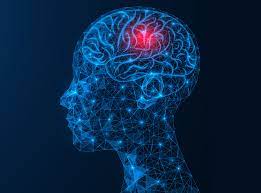Are you or someone you know grappling with chronic migraines? The persistent throbbing pain, sensitivity to light, and nausea can be debilitating, affecting your daily life. In this comprehensive guide, we will delve into the world of chronic migraines, exploring their symptoms, causes, and effective treatment options.
A migraine is considered chronic if it happens 15 days or more per month for three months in a row. These days, headaches will mimic a migraine episode at least eight times.
The pain will be moderate to severe, and the migraine will endure for four hours or up to seventy-two hours. Moreover, light and sound sensitivity or nausea could appear.
Whereas preventative treatment aims to stop a migraine from happening, acute treatment aims to relieve migraine symptoms immediately. Complementary therapies and treatments are available to handle comorbid diseases in addition to acute and/or preventive treatment for chronic migraine.
So, let’s continue to learn more:
What is Chronic Migraine?
Episodes of migraine are more common in those with chronic migraine than in those with episodic migraine. With time, episodic migraine might become chronic.
Episodic vs. Chronic Migraine
A very painful and frequently incapacitating type of headache is called a migraine. To manage their symptoms, people who suffer from migraine episodes frequently need to see a doctor or use prescription medicine. It is uncommon that a straightforward over-the-counter headache medication can effectively treat migraine.
A migraine may be chronic or episodic. An episodic migraine (EM) can last for hours on end on average. After that, there can be a gap of weeks or even months between migraine attacks. In contrast, a chronic migraine (CM) lasts longer and happens more often.
An American Migraine Prevalence and Prevention (AMPP) research found that episodic migraine, which is far more prevalent than chronic migraine, affects 5.6% of American males and 17.1% of American women.
Not everyone who suffers from episodic migraine will go on to acquire chronic migraine. Merely 1.3 percent of American women and 0.5 percent of American males, respectively, report having CM.
Understanding Chronic Migraine Symptoms:
Chronic migraines go beyond the occasional headache. Recognizing the symptoms is crucial for early intervention. Common indicators include:
- Frequent Headaches: Chronic migraines involve headaches that occur 15 or more days per month, lasting for at least three months.
- Throbbing Pain: The pain associated with chronic migraines is often pulsating and intense, typically on one side of the head.
- Sensitivity to Light and Sound: Individuals with chronic migraines may experience heightened sensitivity to light (photophobia) and sound (phonophobia).
- Nausea and Vomiting: The severity of chronic migraines can lead to nausea and, in some cases, vomiting.
- Aura: Some individuals may experience visual disturbances or auras before the onset of a migraine episode.
Decoding Chronic Migraine ICD-10:
For accurate medical coding and billing, healthcare professionals use the International Classification of Diseases, 10th Edition (ICD-10). The specific code for chronic migraines is G43.711. This alphanumeric code aids in documenting and categorizing chronic migraine cases, ensuring proper healthcare management.
Exploring Chronic Migraine Causes:
Understanding the root causes of chronic migraines is essential for developing targeted treatment plans. While triggers can vary from person to person, common factors include:
- Genetics: Family history can play a role in predisposing individuals to chronic migraines.
- Hormonal Changes: Fluctuations in estrogen levels, especially in women, can trigger migraines.
- Environmental Factors: Exposure to certain stimuli, such as bright lights, loud noises, or strong odors, can initiate migraines.
- Stress and Anxiety: Emotional stress and anxiety are recognized as significant contributors to chronic migraines.
- Sleep Disturbances: Irregular sleep patterns or lack of sleep can increase the likelihood of migraine episodes.
Chronic Migraine Treatment Options:
Managing chronic migraines involves a multidisciplinary approach. Here are some effective treatment options:
- Medications: Triptans, anti-nausea medications, and preventive medications can help alleviate chronic migraine symptoms.
- Lifestyle Modifications: Identifying and avoiding triggers, maintaining a regular sleep schedule, and managing stress through relaxation techniques are essential lifestyle changes.
- Cognitive Behavioral Therapy (CBT): CBT can be beneficial in addressing the psychological aspects of chronic migraines helping individuals cope with pain and stress.
- Biofeedback: This technique helps individuals gain better control over physiological functions, reducing the frequency and severity of migraines.
Acute Treatment for Chronic Migraine
Acute treatment refers to a medication taken at the first sign of migraine. Although they don’t stop migraines, these treatments might help with pain during an attack. For maximum effects, the majority of these medications must be taken as soon as a migraine appears.
For acute care, the following medications are most frequently prescribed:
- Ergotamines
- Dopamine antagonists
- Rimegepant and ubrogepant
- Analgesics like nonsteroidal anti-inflammatory drugs (NSAIDs)
- Triptans, available as injections, pills, or nasal spray
- Dihydroergotamine, available in a nasal spray, by injection, or IV
In recent years, oral medications that target the CGRP pathway have been connected to migraine illness. Among the gepants and ditans used to treat persistent migraines are:
- Ubrogepant (treatment for acute)
- Rimegepant (also used prophylactically)
- Zavegepant Reyvow
Reyvow functions differently from other drugs in this class. It stops migraine attacks in their tracks by focusing on serotonin receptors on the brain’s nerve endings. It is not advisable to drive for up to eight hours after taking this medication since it may cause sedation.
Compared to antidepressants and triptans, newer therapies for migraines might have fewer adverse effects. Additionally, those with a history of heart disease, stroke, or vascular illnesses can safely use them.
Biological Infusion Therapy Treatment for Chronic Migraine
For those enduring the relentless grip of chronic migraines, traditional treatments may not always provide the relief needed. In recent years, a groundbreaking approach has emerged: Biological Infusion Therapy.
Biological infusion therapy, also known as biologic therapy or immunotherapy, involves the infusion of biological drugs that target specific molecules involved in the migraine process. Unlike conventional treatments, which often focus on symptom management, biological infusion therapy aims to address the root causes of chronic migraines.
How Biological Infusion Therapy Works:
- Targeted Molecule Inhibition:
Biological drugs used in infusion therapy target specific molecules in the body responsible for triggering migraines. By inhibiting these molecules, the therapy aims to disrupt the migraine cascade.
- Modulating the Immune System:
Some biological drugs modulate the immune system, reducing inflammation and preventing the release of substances that contribute to migraine attacks.
- Customized Treatment Plans:
Biological infusion therapy is tailored to the individual. Based on a thorough assessment, healthcare professionals determine the most suitable biological drug and infusion schedule for each patient.
Contact Fuse Infusion for Chronic Migraine Treatment
Living with chronic migraines can be challenging, but with the right knowledge and approach, managing and alleviating symptoms is possible. If you or a loved one is experiencing chronic migraines, consult Fuse Infusion for a personalized treatment plan.
By understanding the symptoms, decoding the ICD-10, exploring causes, and embracing effective treatment options, you can take control of your chronic migraine journey and improve your overall quality of life.
At Fuse Infusion, we believe in offering premium-quality services to our patients. So, contact us to receive a biological infusion today!

